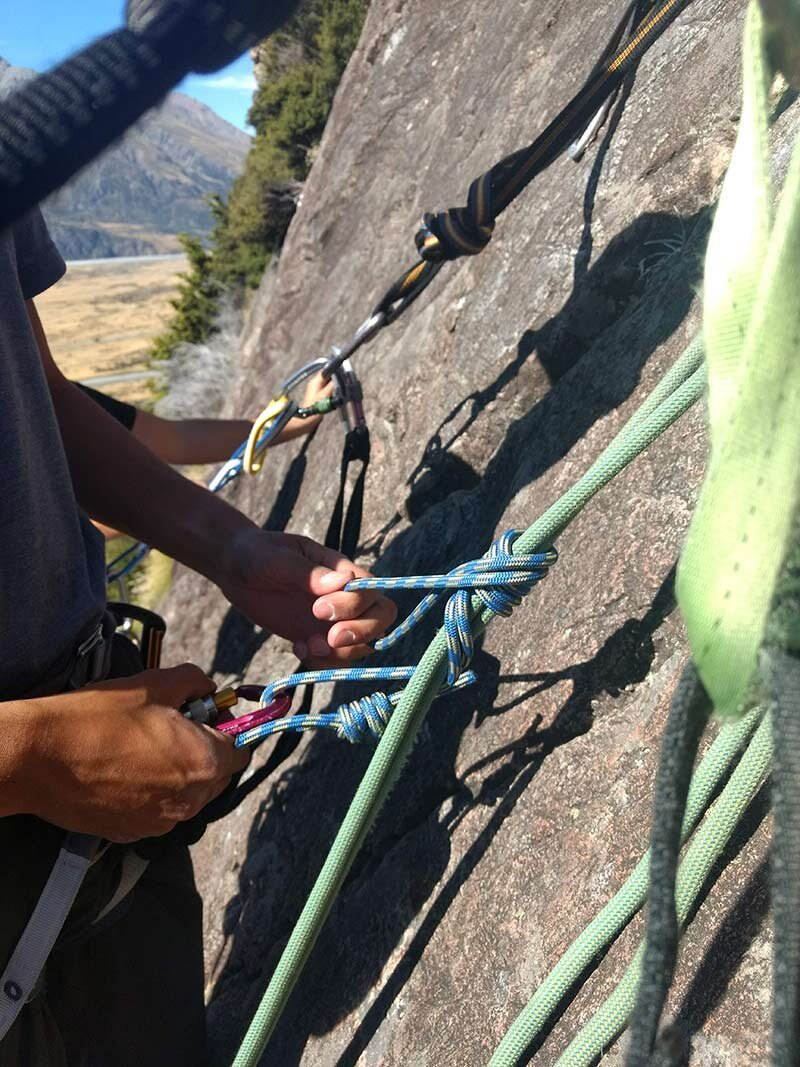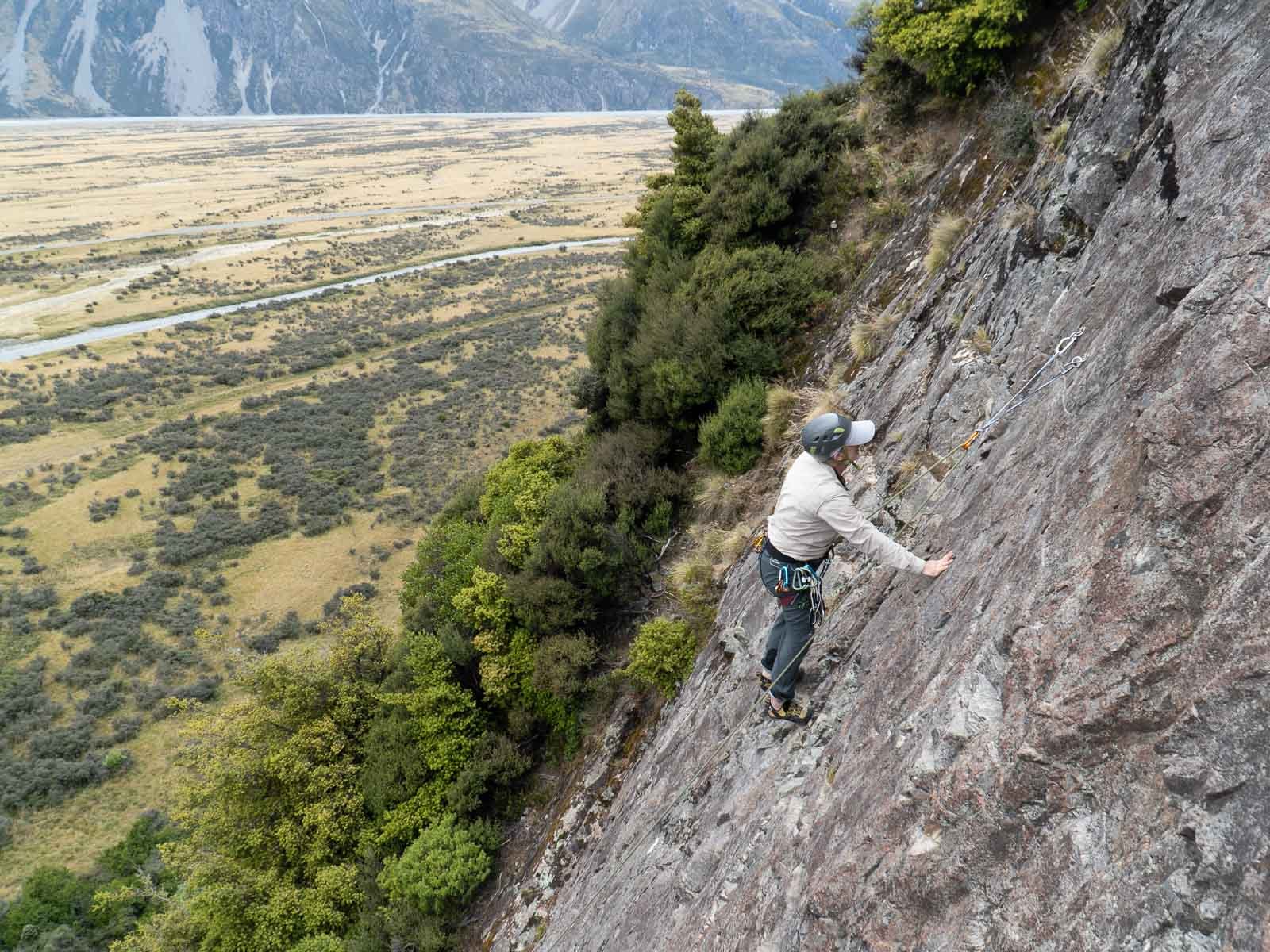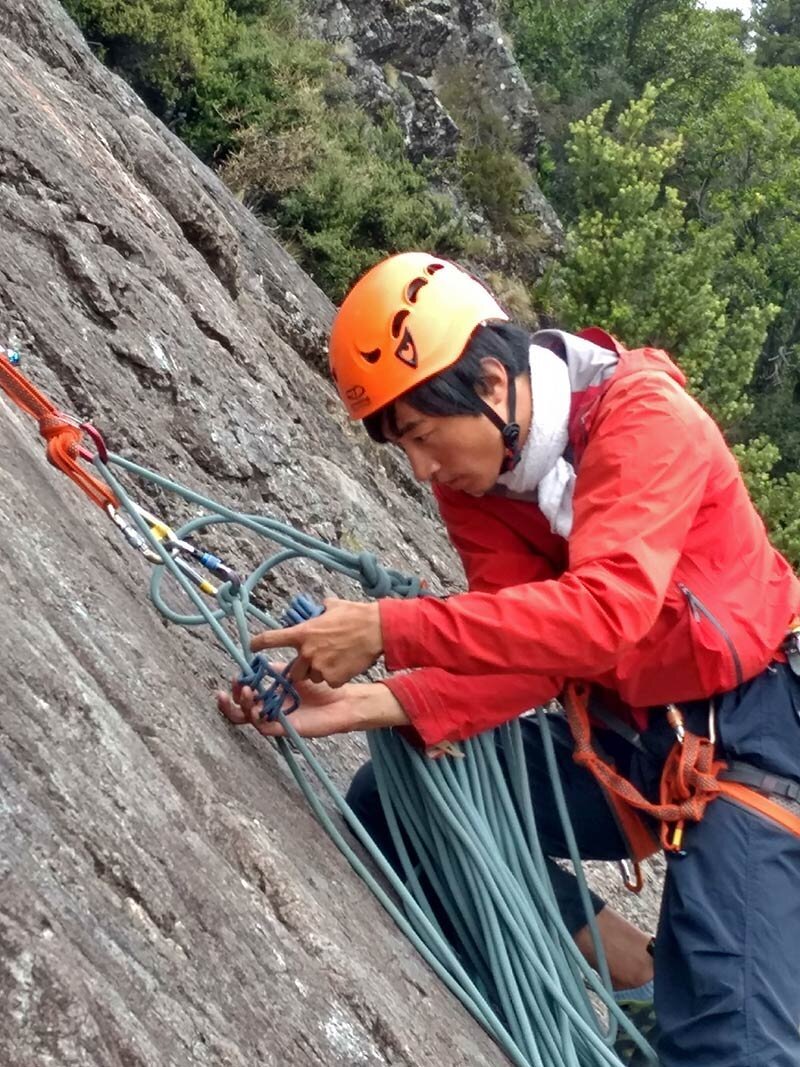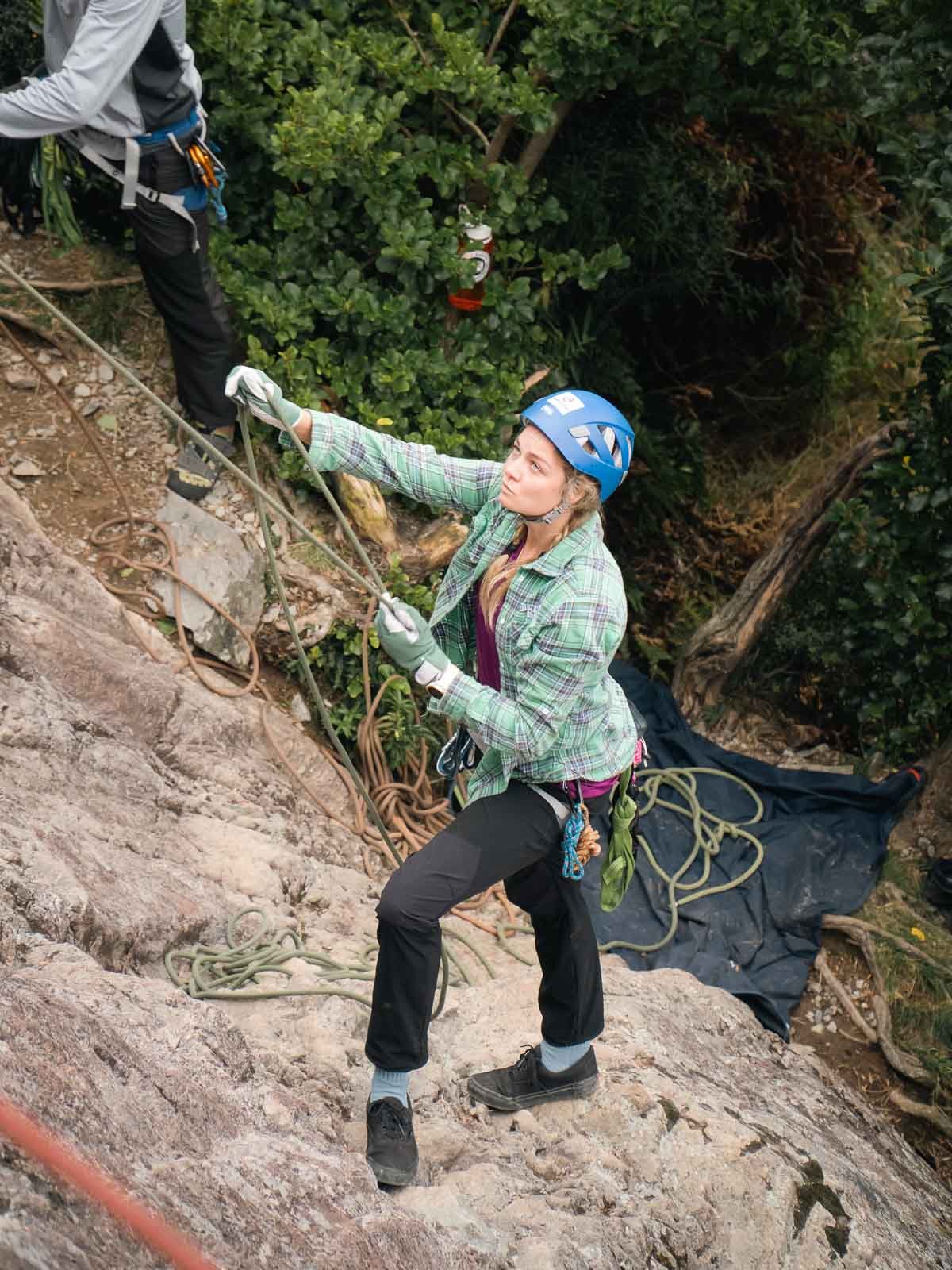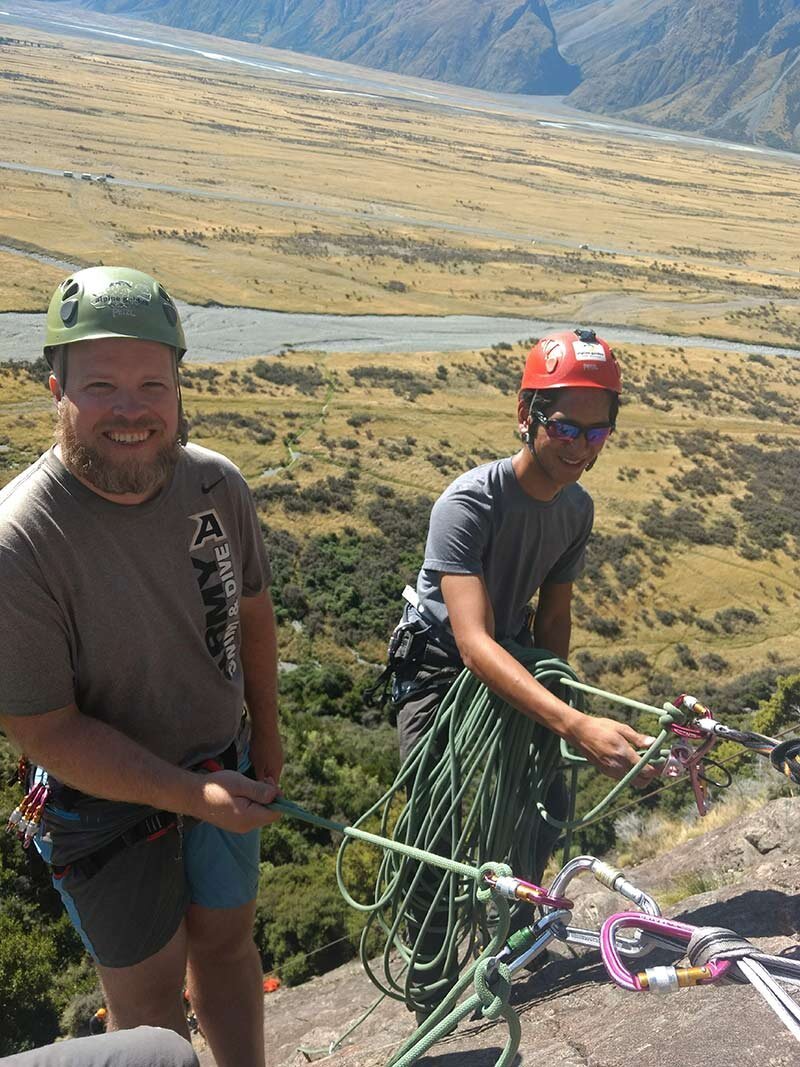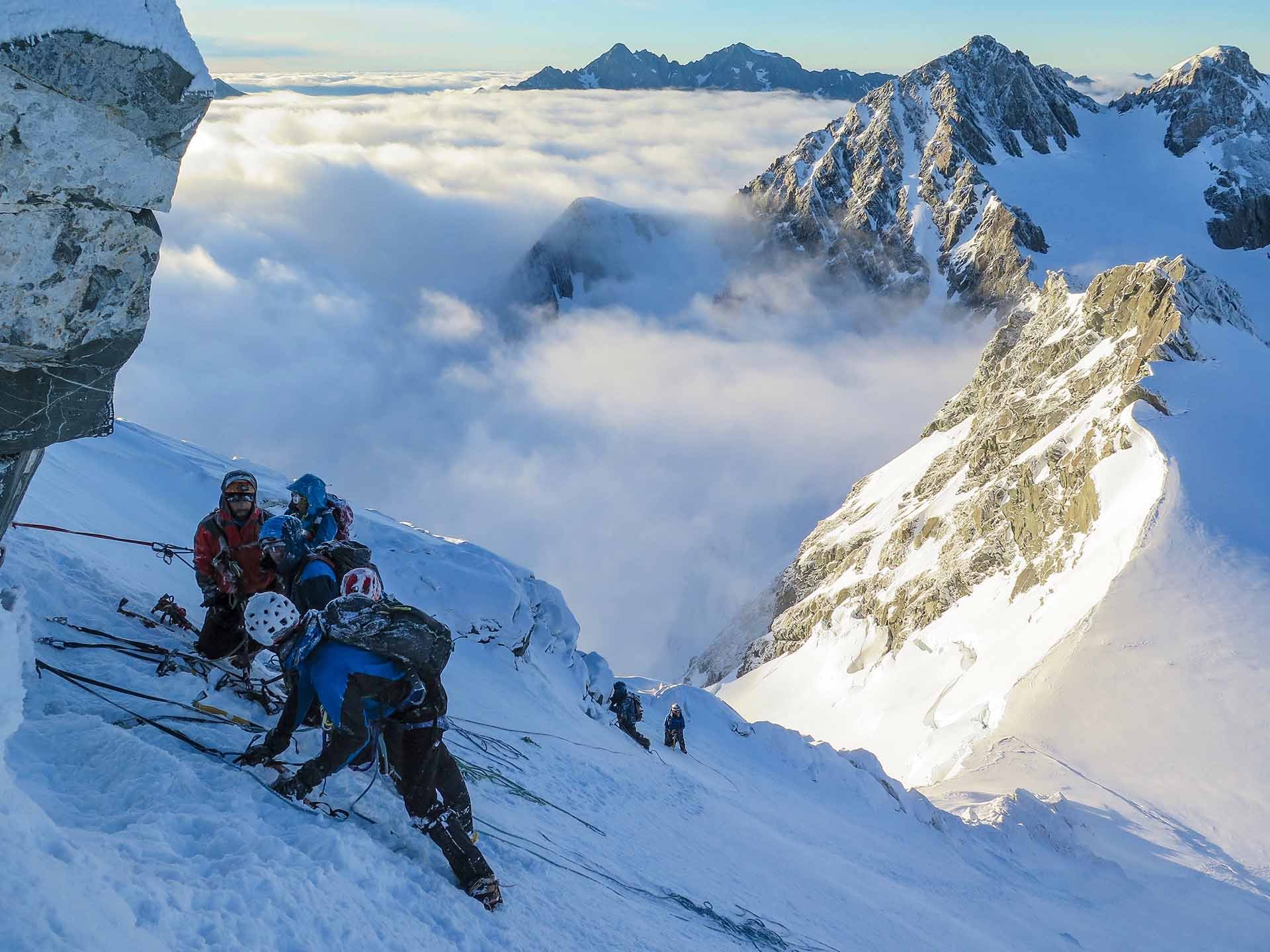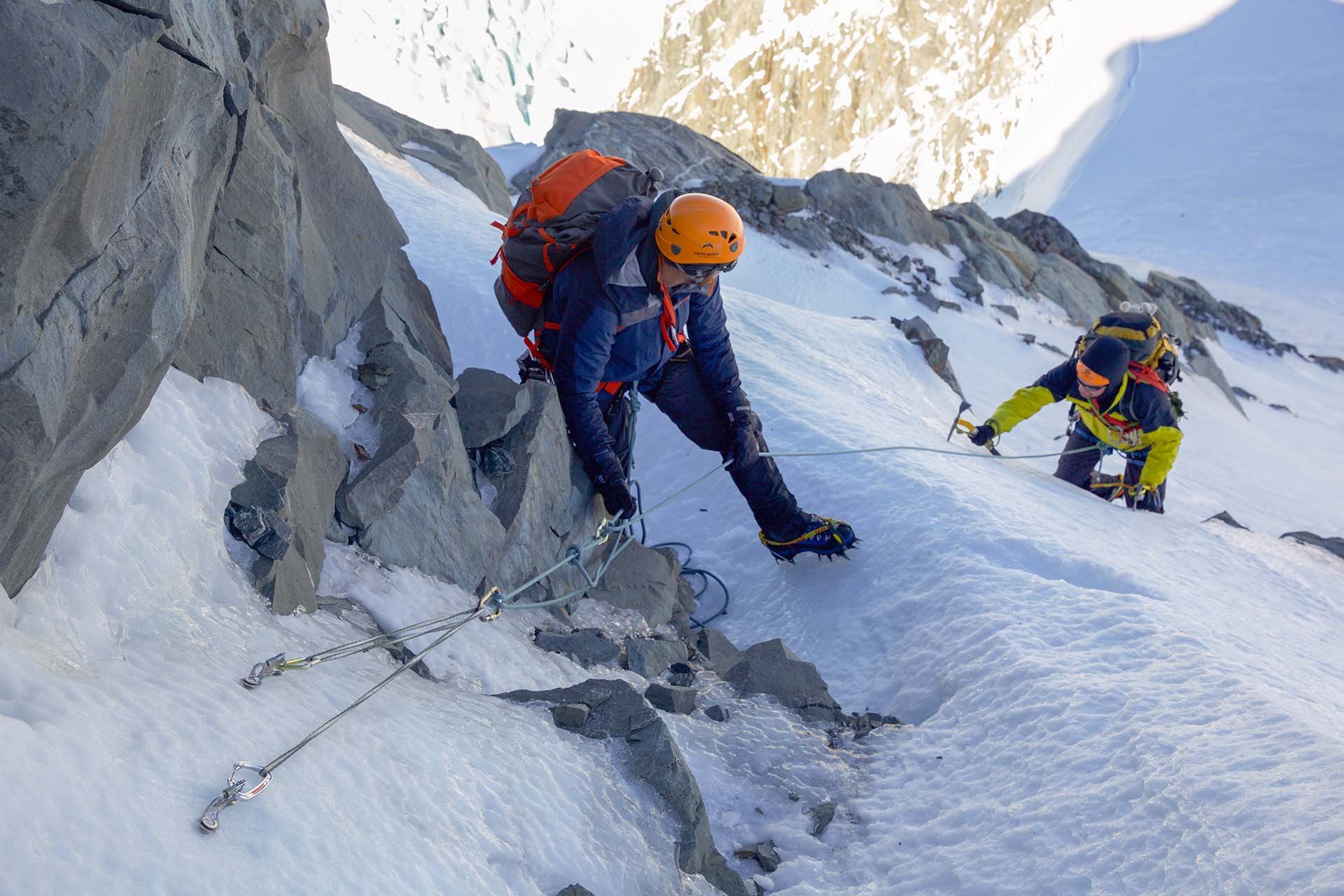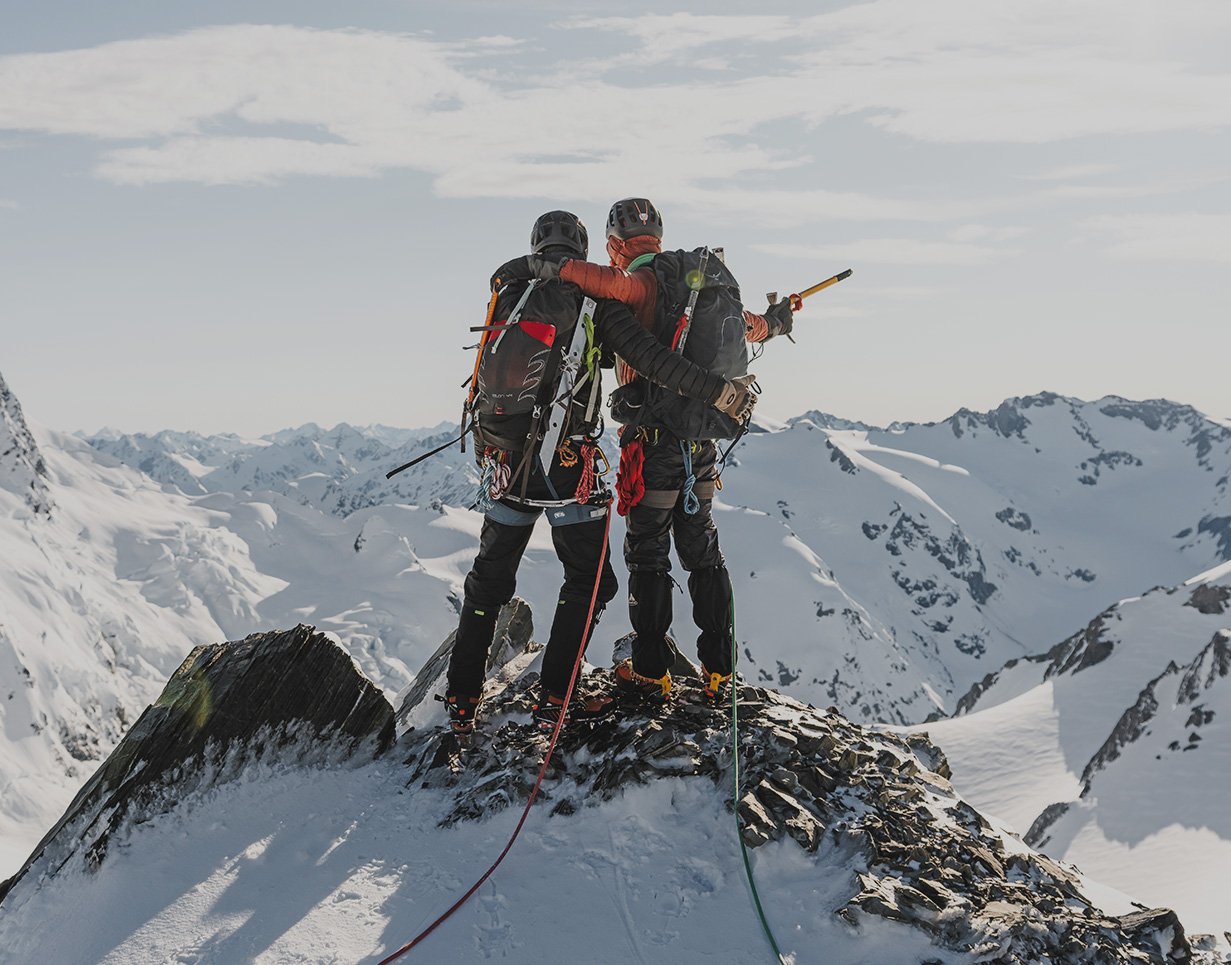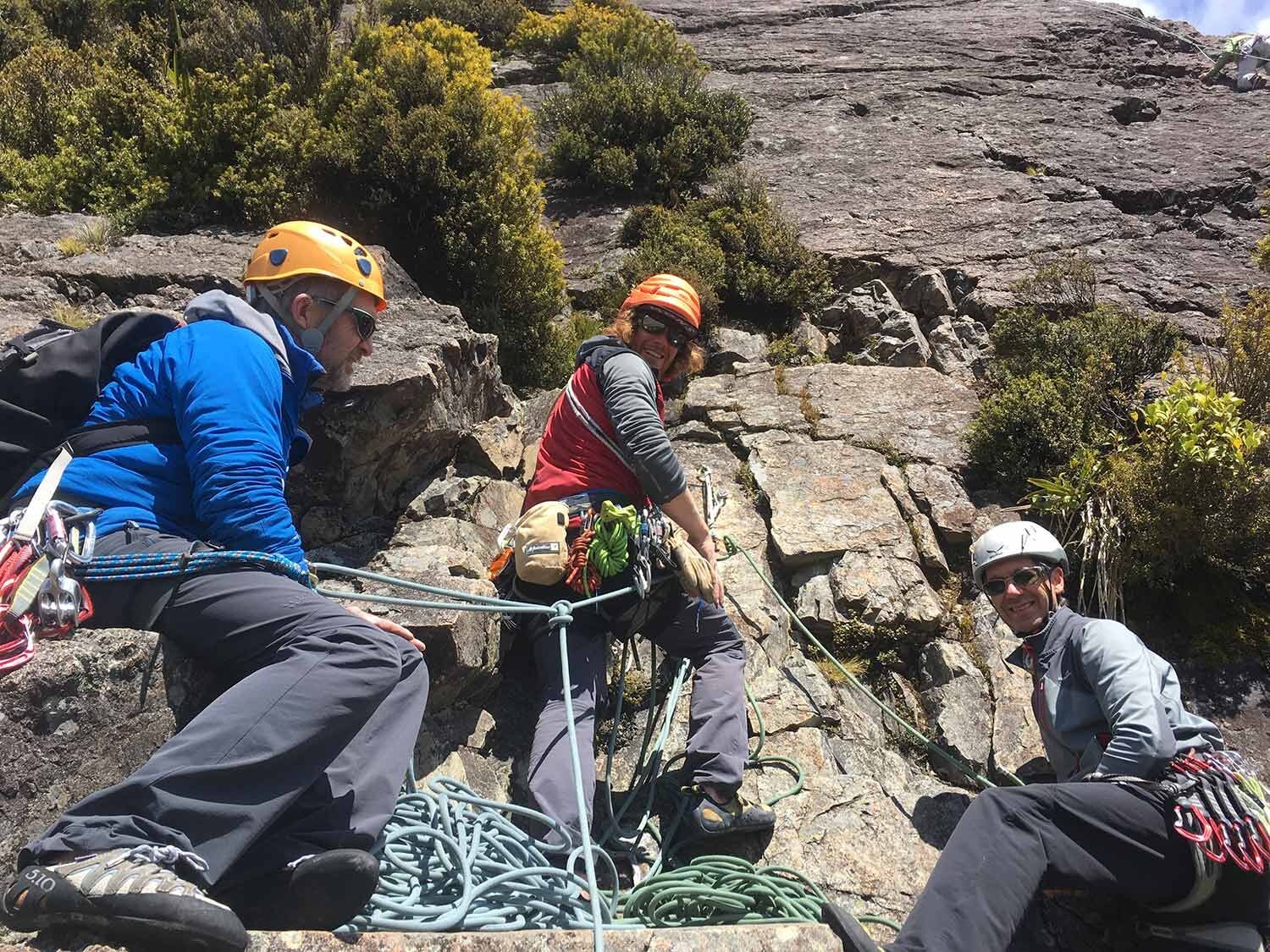
Self-Rescue Workshop
Difficulty
Duration
2 Days
Season
October to April
Gearlist
PRICE $650 NZD
Self-rescue techniques are an essential skill that all rock climbers and mountaineers need to learn and have in their tool kit.
Alpine Guides' Self-Rescue Workshop is a 2-day course designed to deliver modern, state-of-the-art techniques for technical self-rescue in vertical and mountain environments. Just as important, we will spend time looking at how to avoid these problems occurring in the first place.
Because… sometimes things go wrong
Each of the following could happen to any climber, anytime, anywhere. If you are not prepared to deal with these issues, a minor “problem” could easily evolve into a full-blown “epic”, where someone could be seriously hurt, or killed.
For example:
You take out a friend who has never climbed before. They get halfway up a top-rope problem, then freeze. They can’t climb up or lower themselves. What do you do?
Your buddy is leading a rock pitch and takes a fall, breaking an ankle. You want to lower them, but you don't have enough rope. What do you do?
You are on multi-pitch rappel and your partner gets their rappel device jammed and is unable to descend. What can you do?
There are endless situations that climbers may need to overcome. This workshop will give you a range of strategies to resolve any worst-possible situation you are likely to encounter.
Rescue procedures are a life–long learning process. You never know when you will need to use them. The more knowledge you have, the better the outcome will be in any real rescue situation.
Learnings & Outcomes
Self Rescue Workshop is ideal for recreational rock climbers and mountaineers.
You should do this course if:
You climb regularly, or lead climb, and have not had formal rescue training
You are thinking about an NZOIA Alpine, Rock, or Climbing Wall certification, or a qualification in Industrial rope access.
We provide certification of attendance, which can be used to support an application for a ratified qualification.
Your Guides
The guides running this course are professional IFMGA/NZMGA certified, with many years of experience climbing, guiding, coaching, and teaching in New Zealand and internationally.
This course was developed by IFMGA Guide, Pablo Borjas, our Expedition Leader.
What you will learn
Introduction to self-rescue in vertical environments from the perspective of a rock climber or mountaineer.
The organisation process of a self-rescue.
The components of a technical self-rescue:
Escaping from a redirected belaying anchor system.
Assembly of a standard lowering/hauling system (hoist).
Ability to reverse previous systems.
Increasing the mechanical advantage in a hauling system (3:1 hoist to a 5:1 system).
Convert the lowering/hauling system to a counterbalanced rappel system.
Ascending systems on a rope using auto-block knots (prusik).
Lowering a climber system past a knot.
Learning outcomes
In this Workshop, you will apply the various components from the point of view of a recreational climber. A self-rescue considers the climbing party’s independence and their gear.
The Workshop will address:
What you can do with the minimal resources you normally carry into the mountains (rack and a rope)
How to make the best use of the people and equipment present at the time of the incident, where no external help is available.
The focus is always on keeping solutions simple. The systems we use are basic, with minimum gear configurations required.
All training is done to suit your learning pace with a step-by-step approach that gives time to practice.
The teaching approach is designed to maximise learning and safety margins by:
Allowing for the practice of the skills taught
Achieving and maintaining a high degree of skill in the various components and systems
It is important to remember that all these components must be practiced on a regular basis, refreshed, and updated.
Schedule and Specifics
Price: from NZ$650 per person
Includes:
Guide services for 2 days
Complementary transport to the crag
Free use of a range of technical gear (see the gear list)
Certification of achievement (on successful evaluation)
Not Included (please arrange)
Accommodation at Mount Cook Village (we recommend Unwin Lodge)
Meals and all other personal expenses
All courses start at 09:30 AM and finish at 5:00 PM .
Check-in at Alpine Guides office in Mount Cook Village.
Please read our booking Terms and Conditions.
Prices from April 2024
Prices are per-person, in NZ Dollars
| Group size | |
|---|---|
| 1 person | $1,900 |
| 2 people | $1,100 |
| 3 people | $790 |
| 4 people | $650 |
How to Book
The first step for booking is to contact us with your proposed dates.
NZAC Discount
New Zealand Alpine Club Members can receive a discount on this course.
Check with us before booking, with your membership number, and we can supply a promo code.
Experience Required
In addition to a good level of fitness levels and at least one year of outdoor climbing experience, you should:
Be able to top-rope and climb comfortably to level AU/Ewbank 15
Be familiar with building anchors and placing protection
Have a solid grasp of basic climbing knots
Have experience belaying a leader and a second climber
Some leading experience is helpful, but not necessary to necessary to participate.
itinerary and Logistics
Itinerary
This itinerary is subject to modification, mainly based on the weather.
Day 1
Meet and greet at 08:30 - Alpine Guides’ office
Workshop overview, objectives, logistics, and expectations.
Introduction to self-rescue in vertical environments.
First demonstration of the components/systems of vertical self-rescue.
A second demonstration of the components/systems of a vertical self-rescue.
Introductory session at level 1 (ground).
Ascent of a rope using auto-block knots.
Lowering a climber past a knot.
Practice session.
Discussion and clarification Q&A
Day 2
Presentation of the day's activities.
Introductory session at level II (vertical).
Presentation of an ascent system on a rope using auto-block knots (prusik).
Practice session
Discussion and Q&A
Practical evaluation of components of a vertical self-rescue (30 minutes).
Discussion and final comments on the workshop.
Logistics
The workshop takes place at our local crag, Sebastopol Bluffs, where we will work in steep and high-angled terrain
Days begin at 8:30 a.m. at Alpine Guides’ office, before we drive to Sebastopol Bluffs. From there we hike in (15 minutes) to begin. Days will run until approximately 5:00 to 5:30 p.m.
Some classroom sessions will take place at the office.
If conditions at Mount Cook are adverse we may travel down-country to Mt Horrible or Spur Road, or use the Twizel Climbing Wall's facilities.
Evaluation Process
Throughout the course, your guide will be assessing and giving feedback on your work. Once completed to the satisfaction we will provide a certificate of achievement.
Assessment Process Includes:
Technical Skills - Your ability to effectively and efficiently perform the different components of a self-rescue in a vertical environment.
Woking in a Group - Your ability to see the big picture, and how you work to support the other group members.
Initiative - Personal effort, willingness to learn and participate, pushing personal boundaries.
Judgment and Safety - Consideration of various options. The ability to make decisions and pay attention to various hazards/risks and their consequences.
Application - Use of the right tools at the right time and with efficiency and attention to detail
Problem Solving Skills - Your ability to recognise incorrect systems visually at a distance. Ability to improvise when necessary, etc.
Leadership qualities - Ability to develop a plan and work under pressure.
We will also consider how participants prepare and organise themselves during the days of the workshop.
A 25% deposit is required to secure your booking
